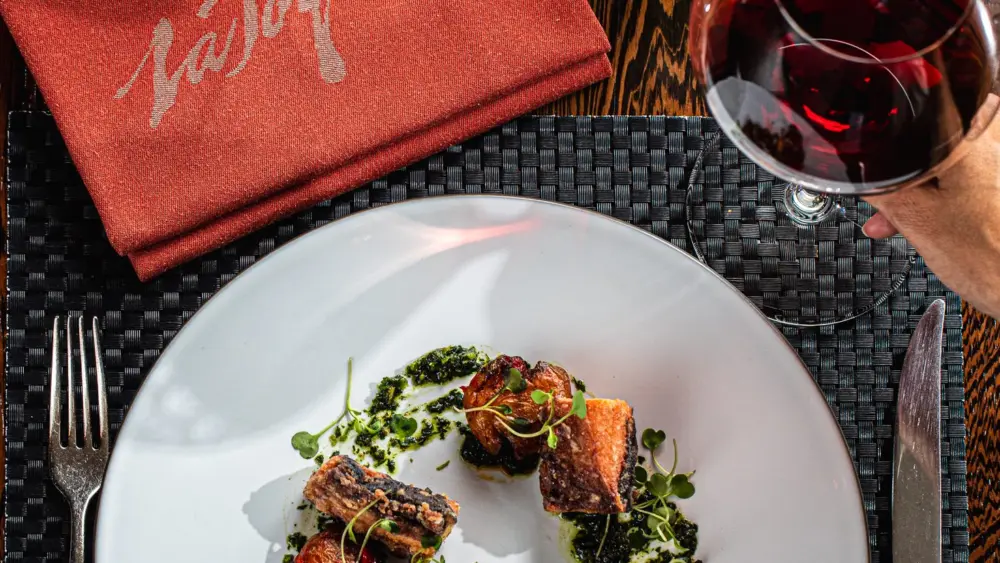
COVID-19 brought unprecedented challenges to the work world. The restaurant industry was hit particularly hard facing dining restrictions, reduced customer demand, financial uncertainties, staff attrition and forced downsizing. Many closed their doors permanently.
Fortunately, the industry is gradually recovering. As restaurants face the ongoing need to recruit, retain and motivate staff in this forever-changed landscape, it is crucial to address these challenges head-on.
Prevent Staffing Disruptions
Strategy first!
Candidly ask your employees why they took a job at your restaurant and why they continue to work there. If needed, use anonymous surveys to make certain you get honest responses. The feedback will surprise you and the information can be used to attract new employees. The answers provide a golden opportunity to expose needed changes in the work environment.
In job descriptions describe what’s in it for candidates, adding as many perks as possible such as: commuter/gas passes, cell phone stipend, wellness stipend, flexible shifts/scheduling, team building/family activities for employees, learning new skills and a positive work environment. More on this below.
You can find strong candidates at online job boards like Indeed.com and ZipRecruiter.com, traditional recruiters, social media platforms (today’s word-of-mouth) and joining professional networks to attract those who align with your values and culture.
Competitive Compensation. It is essential to offer robust packages and benefits. We continually conduct market research to ensure salary and benefits are on par with industry standards—Glassdoor.com and the Department of Labor & Statistics website offer good statistics. Consider extra compensation: additional health insurance, retirement plans, growth opportunities and employee discounts.
Training and Development. Up-skill your staff and new hires by offering ongoing professional development in the restaurant industry—fostering a sense of advancement. Leading recruiting site Zippia.com reports that 87% of millennials say professional development and career growth are essential to them. Utilize teaching platforms such as Coursera.org, YouTube, Udemy.com and LinkedIn Learning, which offer various courses in hospitality and food-and-beverage management. Engage in industry associations: International Live Events Association (ILEA), National Association for Catering and Events (NACE) and conferences like CaterSource.
Positive Work Environment. Foster a culture of optimism with empowering initiatives such as Employee of the Month programs, team-building exercises, continuing one-on-one and group training. Consistent open and honest communication will boost morale and maintain a motivated workforce. Acknowledge and appreciate your employees’ efforts and accomplishments. Listen and get their feedback. Everyone wants to be heard.
At Star Staffing, we brought in performance coach Cheryl Mann to work closely with each of our team members to assess and address needs and concerns. We also host High-Five Fridays where we give kudos and positive shout-outs to employees for a job well done—where the praise comes from co-workers. We celebrate the top producers at our company, your stars might be those who sold the most wine, up-sold diners, took the most shifts or received the best customer feedback.
Virtues of a Thriving Team
You need candidates who have a genuine desire to work in the restaurant industry—demonstrating enthusiasm, customer-centricity and a strong work ethic. During an interview explore the following:
Behavior:
- Describe a time when you had to quickly adapt to a change in priorities or work assignments. Describe how you handled it.
- Share an example of a challenging time you encountered at work. How did you overcome it and what did you learn from it?
Problem-Solving/Learning Ability:
- Suppose you had three customers in line, and they were getting upset because the person in front was taking too much time ordering food. Talk about how you would handle the situation to ensure the customers aren’t upset and don’t leave.
- If you got the job today and someone complained that their food order came out too cold: How would you handle this situation?
- Share a time when you had to learn a new technology, process or procedure. How did you approach the learning curve and adapt to the change?
Attitude and Mindset:
Look for a strong team player—can they play well with others? Can they easily leave any drama behind and remain calm in a crisis? People who display a cooperative attitude, effective communication skills and the ability to collaborate seamlessly with colleagues will enhance the overall experience for your guests and team. So, ask:
- What excites you most about working in this particular restaurant, or the hospitality industry in general?
- Can you share a time when you went above and beyond to deliver excellent service or contribute to a positive work environment?
- How do you ensure that customers have an amazing experience? Can you provide an example of a time when you went out-of-the-box to meet customer expectations?
In the wake of COVID-19, staffing challenges continue to pose a significant hurdle. However, by applying strategic measures, management can effectively navigate these challenges while limiting financial losses or added expenses incurred when training teams and acquiring new hires.
Nicole Smartt Serres is co-owner and president of Star Staffing. She is also author of From Receptionist to Boss: Real-Life Advice for Getting Ahead at Work. Reach her at 855-782-7562 and learn more at starhr.com.



